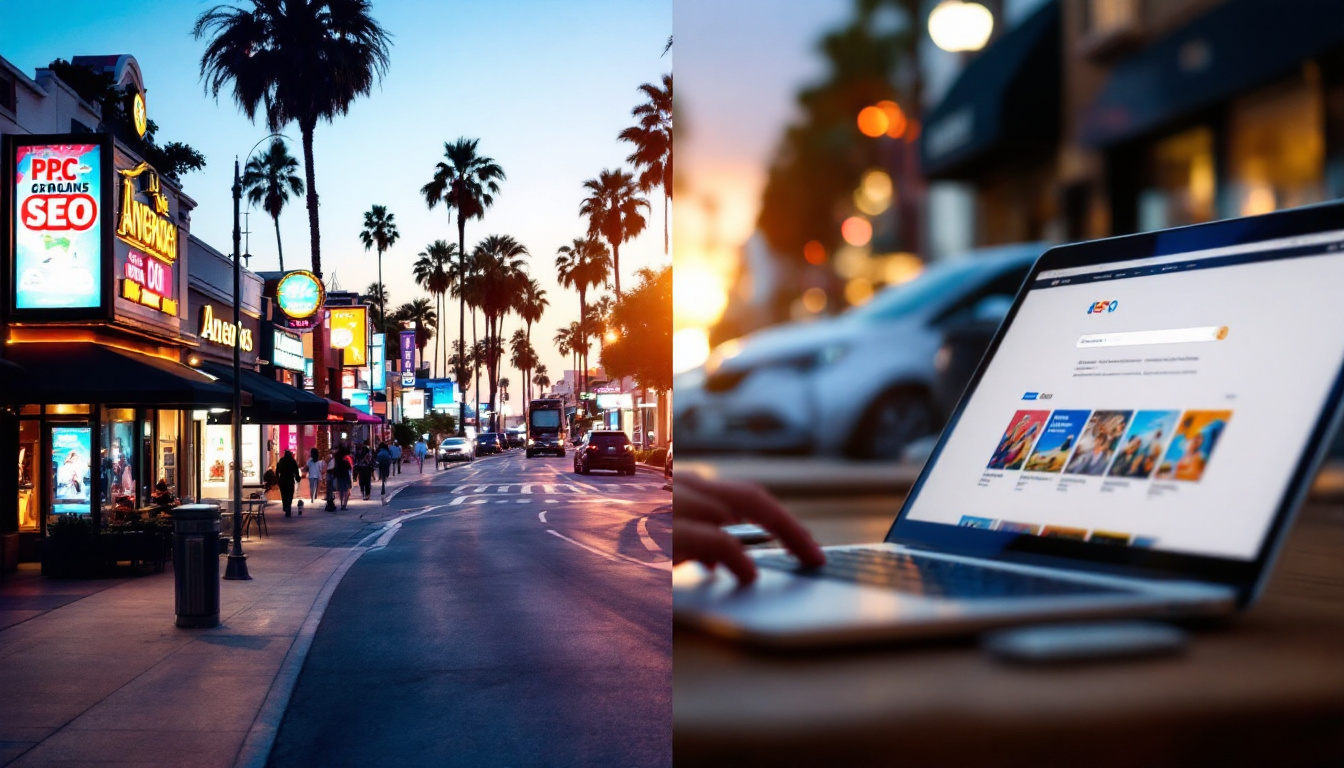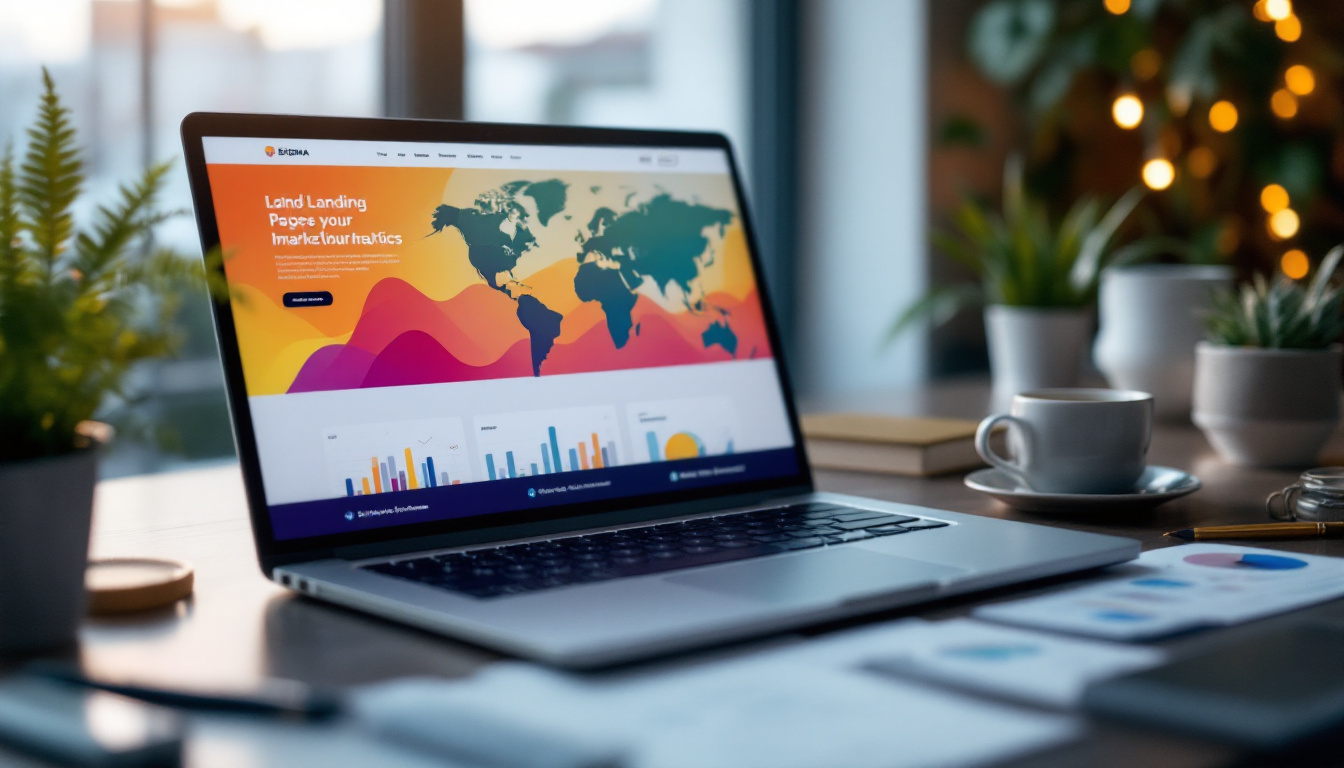Common Myths About PPC for Anaheim, CA Businesses

Pay-per-click (PPC) advertising has become a fundamental component of digital marketing strategies for businesses in Anaheim, CA. However, the space is cluttered with misconceptions that can deter local companies from leveraging this effective marketing method. In this article, we will explore and debunk some of the most common myths surrounding PPC, providing clarity on its benefits and practical applications for businesses of all sizes.
Debunking the 'PPC is too expensive' myth
One of the most prevalent myths is that PPC advertising is prohibitively expensive for businesses, particularly for small enterprises. Many entrepreneurs believe that only large corporations with substantial marketing budgets can reap the benefits of PPC campaigns. However, this perception is misleading.

PPC platforms like Google Ads allow users to set their own budgets and bid amounts, making it possible for companies of all sizes to participate in online advertising. By utilizing precise targeting options, even a modest budget can yield significant returns if executed effectively.
A key aspect of PPC is its flexibility. Advertisers can adjust their spending based on performance and return on investment (ROI). Furthermore, PPC campaigns often deliver quicker results compared to organic search methods, making them a smart choice for businesses looking to generate immediate traffic and leads.
Moreover, the ability to track and analyze PPC performance in real-time provides businesses with invaluable insights. Advertisers can monitor which ads are performing well and which ones are not, allowing for data-driven decisions that can enhance campaign effectiveness. This level of transparency is often lacking in traditional advertising methods, where gauging success can be much more challenging. With tools like A/B testing, businesses can experiment with different ad copies, keywords, and landing pages to optimize their campaigns continually.
Additionally, PPC advertising can be particularly beneficial for niche markets. Smaller businesses often find that they can compete effectively against larger competitors by targeting specific keywords that are relevant to their audience. This targeted approach not only helps in reducing costs but also ensures that the ads reach the most interested potential customers, thereby increasing the likelihood of conversion. By focusing on long-tail keywords, which are typically less competitive and more cost-effective, small businesses can carve out a space for themselves in the digital landscape without breaking the bank.
Why PPC is not just for big companies
The misconception that PPC advertising is solely for large companies can discourage smaller businesses from exploring this marketing avenue. In reality, PPC can be remarkably beneficial for businesses of all sizes.
Small and medium-sized enterprises (SMEs) can harness the power of PPC to level the playing field with larger competitors. By carefully selecting keywords, targeting local audiences, and creating compelling ads, even a business with limited resources can achieve visibility and attract customers effectively.
Additionally, platforms such as Google Ads offer options like geo-targeting and device targeting, which are especially advantageous for local businesses in Anaheim. This means that small businesses can tailor their advertisements to reach the right audience at the right time without overspending.
Moreover, PPC campaigns can be adjusted in real-time based on performance metrics. This flexibility allows businesses to experiment with different ad copies, landing pages, and bidding strategies to find what resonates best with their audience. For instance, a local coffee shop might test various promotions, such as discounts on certain beverages or loyalty programs, to determine which offers drive the most traffic and conversions. This iterative process not only enhances the effectiveness of the campaigns but also provides valuable insights into customer preferences and behaviors.
Targeting capabilities
PPC allows businesses to narrow down their audience to only those most likely to convert. This targeted approach maximizes ROI by ensuring that ad spend is focused on users who fit predefined criteria.
Furthermore, the ability to utilize demographic targeting means that businesses can reach specific age groups, genders, and even interests that align closely with their product offerings. For example, a boutique fitness studio can target ads to health-conscious individuals aged 25-40 who live within a certain radius of their location. This precision not only increases the chances of attracting potential customers but also fosters a sense of community engagement, as local residents feel more connected to businesses that cater specifically to their needs.
Quick implementation
Unlike traditional marketing methods that can take significant time to implement, PPC campaigns can be launched almost instantly. For businesses looking for quick results, this feature is crucial.
This rapid deployment is particularly beneficial during seasonal promotions or events. For instance, a small retail store can quickly set up a PPC campaign to promote a holiday sale, ensuring that their ads go live just in time to capture the influx of shoppers. Additionally, the immediate feedback provided by PPC analytics allows businesses to assess the effectiveness of their campaigns almost in real-time, enabling them to make swift adjustments to optimize performance and capitalize on emerging trends or consumer interests.
Understanding the role of analytics in PPC
Analytics play a pivotal role in PPC advertising, yet many business owners overlook their importance. Utilizing analytics effectively can lead to more informed decision-making and better outcomes in advertising campaigns. The ability to track and measure every aspect of a PPC campaign means that businesses can pinpoint exactly where their advertising dollars are going and how effectively they are being spent. This level of insight is crucial in today's competitive digital landscape, where every click counts and every conversion matters.
By analyzing metrics such as click-through rates (CTR), conversion rates, and cost per acquisition (CPA), businesses can gain valuable insights into the performance of their campaigns. This data enables them to make necessary adjustments, optimize their ads, and improve targeting strategies. For instance, if a particular ad group has a high CTR but low conversion rates, it may indicate that while the ad is attracting clicks, it may not be resonating with the audience or leading to the desired action. Such insights allow for targeted revisions that can enhance overall campaign effectiveness.
Furthermore, utilizing tools like Google Analytics in conjunction with PPC data can lead to comprehensive performance evaluations. Understanding user behavior and identifying which keywords generate the most traffic can help businesses fine-tune their marketing tactics. Additionally, segmenting data by demographics or geographic locations can uncover hidden opportunities, allowing businesses to tailor their campaigns to specific audiences and maximize their reach. The integration of these analytics tools not only streamlines the data collection process but also enhances the accuracy of the insights derived from the data.
Optimizing campaigns
Analytics provide the foundation for ongoing campaign optimization. Businesses can examine what works and what doesn't and continuously refine their strategies for better efficiency and cost-effectiveness. For example, A/B testing different ad copies or landing pages can reveal which variations yield the highest engagement and conversion rates. This iterative approach to optimization ensures that businesses are not only reacting to data but proactively seeking improvements that can lead to greater success over time.
Measuring success
Ultimately, analytics transform vague marketing efforts into concrete data-driven strategies that empower businesses to assess their success and ROI accurately. By establishing clear KPIs and regularly reviewing performance metrics, businesses can create a feedback loop that informs future campaigns. This not only fosters a culture of continuous improvement but also helps in justifying marketing budgets to stakeholders, as tangible results can be presented. Moreover, as the digital landscape evolves, staying ahead of trends through analytics can position businesses to capitalize on new opportunities, ensuring they remain competitive in an ever-changing market.
How PPC can provide immediate results
One of the standout advantages of PPC is its ability to deliver immediate results. Unlike SEO strategies, which can take months to bear fruit, PPC campaigns can drive traffic to a website as soon as they go live.
This is especially crucial for businesses in competitive markets like Anaheim, where timing can significantly affect customer acquisition. Having immediate visibility on search engines can help businesses gain a foothold and drive sales without delay.
Moreover, PPC campaigns can be tailored for specific promotions or seasonal offerings. Companies can quickly create ads that align with current trends, allowing them to capitalize on market demands effectively.
Budget control
PPC gives businesses substantial control over their budgets, allowing them to allocate funds based on immediate needs. This level of control further enhances the potential for quick returns.
Testing and iteration
With the ability to run A/B tests on different ad copies and landing pages, businesses can quickly determine what resonates with their audience, enabling rapid adjustments for optimal outcomes.
PPC vs. SEO: Which is better for your business?
When considering digital marketing strategies, a common dilemma arises: Should your business pursue PPC or SEO for online visibility? The answer often depends on individual business goals, budgets, and timelines.

SEO is an essential strategy for long-term visibility and organic traffic growth. However, the process can be slow, requiring time and effort to develop content and build authority. Conversely, PPC offers quick results, making it more suitable for businesses looking to gain immediate traction and sales.
In many cases, a combination of both strategies is the most effective approach. PPC can serve as a supplemental channel while SEO efforts are underway, allowing businesses to maintain visibility until organic rankings improve.
Complementary strategies
Utilizing both PPC and SEO allows businesses to capitalize on various aspects of search engine marketing, from short-term gains to long-term sustainability.
Choosing the right strategy
To determine which approach is best, businesses should evaluate their goals, available resources, and the competitive landscape. A well-rounded marketing strategy that integrates both PPC and SEO can provide the optimal balance for advertising success.
In conclusion, understanding the truths about PPC advertising can empower businesses in Anaheim, CA, to navigate the digital marketing landscape effectively. By debunking common myths, clarifying the benefits of analytics, recognizing capabilities for immediate results, and distinguishing between PPC and SEO, business owners can make informed decisions that ultimately drive growth and success.

As a Google Ads expert, I bring proven expertise in optimizing advertising campaigns to maximize ROI.
I specialize in sharing advanced strategies and targeted tips to refine Google Ads campaign management.
Committed to staying ahead of the latest trends and algorithms, I ensure that my clients receive cutting-edge solutions.
My passion for digital marketing and my ability to interpret data for strategic insights enable me to offer high-level consulting that aims to exceed expectations.





























